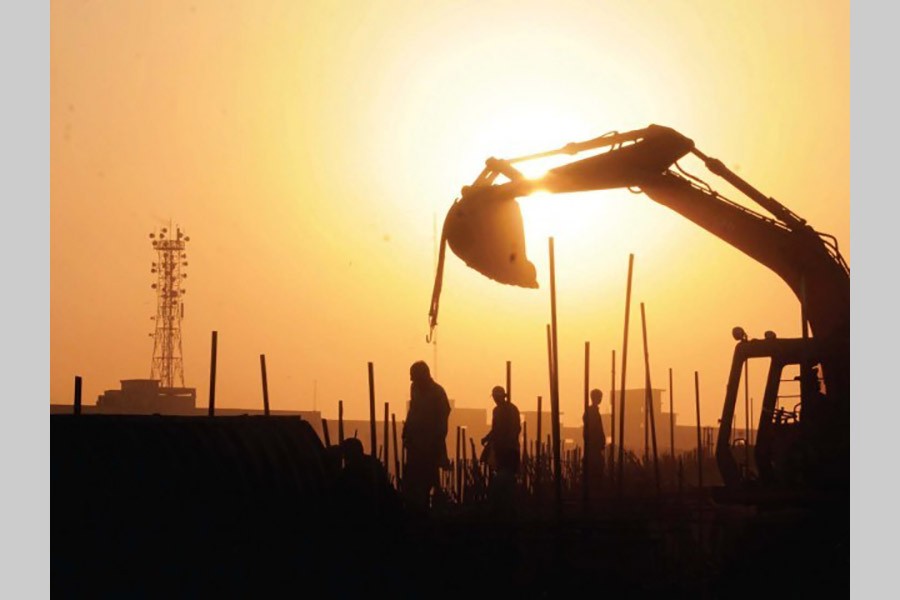It has been more of a common practice on the part of most government agencies to delay execution of development projects, leading to two to threefold hike in their costs. Allegations have it that, in some cases, such implementation delays are made deliberately with the aim to inflate the cost of projects that would benefit the officials and contractors concerned, financially.
That, it seems, is only a part of the story. When it comes to public sector projects, the process of inflating costs begins right from the beginning. The cost of projects is fixed at levels more than the justified ones. The incidence of sending back projects by the Planning Commission (PC) because of high costs in recent years is a pointer to that fact. The Commission does, at times, face pressure from influential quarters to approve projects at costs higher than the usual ones.
Last Tuesday, the Executive Committee of the National Economic Council (ECNEC) approved the country's second elevated expressway between Dhaka and Ashulia at a cost of Tk 170 billion. The per kilometre (km) cost of 24-km expressway has been fixed at Tk 7.04 billion. The cost, according to experts in the relevant field, is abnormally high. A newspaper report compared the per km cost of proposed expressway with that of similar projects implemented in a number of countries, including Vietnam and India. The per km cost in Vietnam and neighbouring India is less than one-third of that of the proposed Dhaka-Ashulia expressway.
The reason for fixing cost at a higher level in the case of Dhaka-Ashulia expressway could be due to the external financier. A leading Chinese construction firm first proposed to construct the second expressway that is seen a vitally important project to ease traffic congestion on Abdullahpur-Ashilia-Chandra road, the gateway to as many as 30 districts from the capital. As it is happening in the case of some other large projects, Bangladesh remains vulnerable to whims of donor countries/agencies because of the former's lack of capacity to bankroll cost-intensive infrastructure projects.
The country does not have enough resources to implement large infrastructure projects. Soft loans from multilateral or bilateral donors are not available in sufficient quantities. Some external financiers tend to take advantage of the situation and do very often push high interest-bearing credit and manipulate the costing of the projects. They somehow manage the local officials involved with the process of determining the costs of projects. The suppliers' credit in a way has, to a great extent, vitiated the country's development administration, at least, in areas of large infrastructure projects.
There is no denying that providers of such credit would try to make the maximum possible gains out of their investment. But the situation, apparently, has gone too far so far as so-called 'limited' and 'unsolicited' offers are concerned.
Moreover, in many cases, the initial cost of projects undergoes revision because of the delay in execution. For instance, a move is underway to hike the cost of first elevated expressway, initiated some years back. The implementation of the project until now has remained confined to acquisition of land. But the implementing agency has already sought cost hike of the project that is being implemented under the PPP initiative. There is no guarantee that there would not be any repetition of such requests during the implementation stage of the project. Thus, the issue does deserve serious attention of the country's policymakers.


